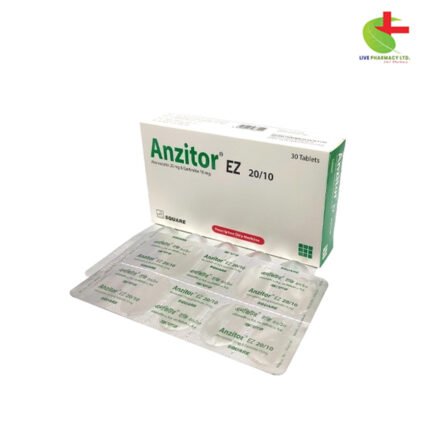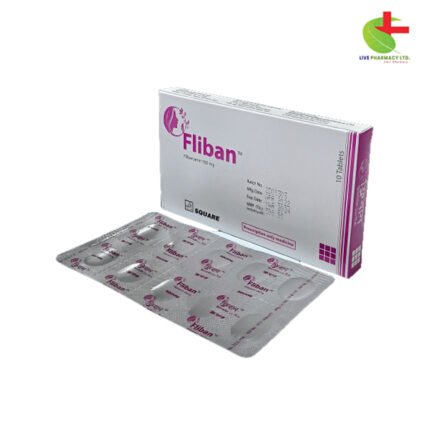Itra 200
168.00৳ Strip
- Itraconazole: Utilizes SUBA (Super Bio-available) technology for enhanced effectiveness
- Indications: Treats a wide range of fungal infections including candidiasis, dermatophytoses, and systemic mycoses
- Mechanism of Action: Inhibits Cytochrome P-450 enzymes crucial for fungal cell membrane synthesis
- Dosage: Varied dosages based on infection severity; tailored for non-systemic and systemic fungal infections
- Considerations: Caution in hepatically impaired patients and those on interacting medications
 Brand
Brand
|
Square Pharmaceuticals PLC |
|---|---|
 Generics
Generics
|
Itraconazole |
 Type
Type
|
Tablet |
Indications
Itraconazole, marketed with SUBA (Super Bio-available) technology, is effective in treating a variety of fungal infections including oropharyngeal candidiasis, vulvovaginal candidiasis, pityriasis versicolor, and various types of tinea infections. It is also indicated for serious systemic fungal infections such as systemic candidiasis, aspergillosis, and cryptococcosis, including cryptococcal meningitis. Additionally, it serves as maintenance therapy for preventing fungal infections in AIDS patients and during prolonged neutropenia.
Pharmacology
Itraconazole inhibits Cytochrome P-450 enzymes, crucial for ergosterol biosynthesis in fungal cells. This disruption leads to impaired cell membrane function, affecting permeability and enzyme activity, ultimately inhibiting fungal growth.
Dosage & Administration
Dosage varies based on the type and severity of the fungal infection. For non-systemic conditions like vulvovaginal candidiasis and tinea infections, doses range from 65 mg to 200 mg daily, administered for specified durations. Systemic infections such as aspergillosis and cryptococcosis may require higher doses adjusted according to clinical response.
Pediatric Use
Safety and efficacy of Itraconazole capsules have not been established in pediatric patients, thus caution is advised.
Interactions
Itraconazole interacts significantly with drugs like terfenadine, cisapride, and certain anticonvulsants and should not be used concurrently with these medications.
Contraindications
It is contraindicated in patients with known hypersensitivity to itraconazole or any of its components, and in those with severe hepatic impairment. Co-administration with rifampin is also contraindicated.
Side Effects
Common side effects include nausea, abdominal pain, and headache. Long-term use may lead to liver enzyme elevation and peripheral neuropathy.
Pregnancy & Lactation
Itraconazole is contraindicated in pregnancy and not recommended during lactation.
Precautions & Warnings
Gastric acidity reduction impairs absorption; administer acid-neutralizing agents at least two hours after itraconazole intake. Monitor liver function during prolonged therapy.
Therapeutic Class
Itraconazole belongs to the class of drugs used for subcutaneous and systemic mycoses.
Storage Conditions
Store below 25°C in a cool, dry place, away from light and out of reach of children.
Common Questions about Itraconazole
Itraconazole 200 mg Tablet is an antifungal medication used to treat various fungal infections. It inhibits Cytochrome P-450 enzymes, essential for fungal cell membrane synthesis.
Quick Tips
Take Itraconazole with food at the same time daily for best results. Avoid antacids within two hours of taking it. Inform your doctor if you experience any adverse reactions or changes in health status.













Reviews
There are no reviews yet.